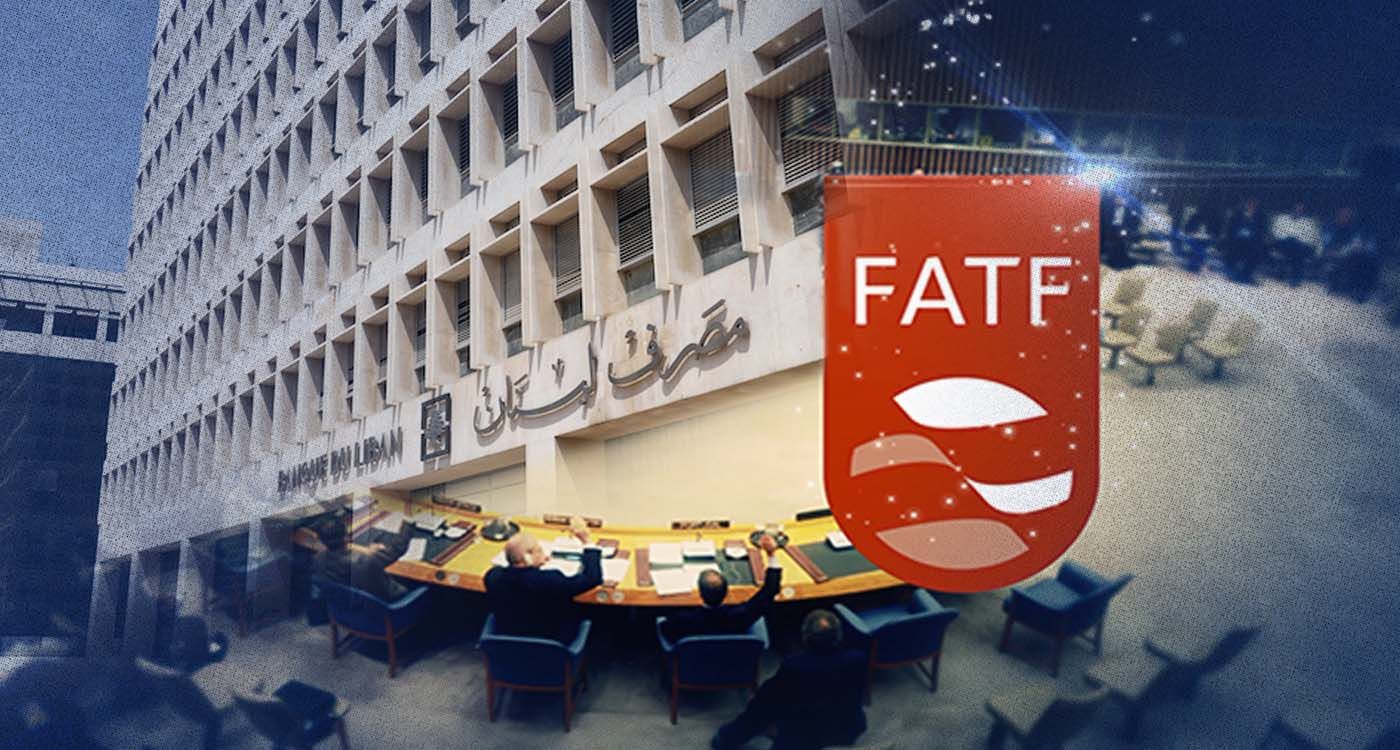
On October 25, Lebanon was officially placed on the gray list of the Financial Action Task Force (FATF), subjecting the country to enhanced monitoring. The FATF report highlighted ongoing vulnerabilities in Lebanon’s efforts to strengthen measures against money laundering and terrorism financing.
A key point in the report was FATF’s acknowledgment of the Lebanese banking sector and Lebanon’s Central Bank (BDL) for their commitment to complying with FATF standards and regulations. Lebanese banks have long implemented critical steps to align with international anti-money laundering, counter-terrorism financing and sanctions compliance requirements, showing their willingness to cooperate with global financial institutions. These measures include adopting modern systems, imposing stringent oversight on financial transactions, training staff and developing dedicated compliance units. Additionally, banks have maintained a steady commitment to updating their systems to meet evolving FATF expectations, integrating the latest technologies to facilitate automatic compliance and enhance transparency.
The report emphasized BDL’s essential role in promoting monetary and financial transparency and reinforcing compliance across the banking sector. FATF acknowledged that, since the May 2023 mutual evaluation report, Lebanon has made significant strides in implementing several recommended measures. This includes introducing new regulations to its financial sector and issuing a BDL circular requiring banks and financial institutions to set up specialized units dedicated to combatting bribery and corruption, while also taking steps to curb financial activities.
While FATF has acknowledged Lebanon's progress in implementing several recommended measures, the country must persist in its reform efforts to close existing gaps in anti-money laundering and counter-terrorism financing. To accelerate these reforms and work toward Lebanon’s removal from the gray list and avoidance of the black list, a ministerial committee was established, chaired by Caretaker Prime Minister Najib Mikati. The committee comprises:
Caretaker Minister of Justice, Judge Henry Khoury.
Caretaker Minister of National Defense, Brigadier General Maurice Slim.
Caretaker Minister of Finance, Youssef al-Khalil.
Caretaker Minister of Interior and Municipalities, Judge Bassam Mawlawi.
Attorney General at the Court of Cassation, Judge Jamal al-Hajjar.
Acting Governor of the Central Bank of Lebanon (BDL), Wassim Mansouri.
Secretary General of the Cabinet, Judge Mahmoud Makkiyeh.
Director General of Internal Security Forces (ISF), Major General Imad Othman.
Judge Rana al-Akoum.
The committee’s main objective is to oversee the implementation of FATF’s recommendations and to address the deficiencies and vulnerabilities that led to Lebanon’s inclusion on the gray list. Each minister and security or legal official within the committee will be responsible for resolving the specific issues related to the institution they manage or oversee.
According to FATF, Lebanon’s judicial actions are insufficiently aligned with the risks and threats, especially regarding customs enforcement, anti-smuggling, tax evasion and trafficking in drugs and humans. The country also lacks a clear mechanism for tracing the origins and proceeds of financial crimes and for freezing and seizing these assets. Lebanese judicial authorities have struggled to establish effective systems for confiscating criminal proceeds.
FATF further points to corruption within Lebanon’s senior administrative ranks and the absence of transparent mechanisms for recovering assets that have been seized or transferred to other jurisdictions. Additionally, Lebanon has made limited progress in investigating potential threats posed by significant organized local paramilitary groups, implicitly referring to Hezbollah without explicitly naming it. To strengthen its compliance and remove itself from the gray list, Lebanon must undertake a series of targeted actions, including:
- Conduct thorough risk assessments for the specific threats related to terrorism financing and money laundering as outlined in the evaluation report, and implement effective policies and measures to mitigate these risks.
- Strengthen mechanisms for the prompt and efficient execution of mutual legal assistance requests, extraditions and asset recovery procedures.
- Deepen understanding of the risks associated with designated non-financial businesses and professions (DNFBPs) and enforce proportionate, effective and deterrent penalties for non-compliance with anti-money laundering and counter-terrorist financing obligations.
- Ensure updated beneficial ownership information and enforce adequate penalties and risk mitigation measures for legal entities.
- Optimize the use of financial intelligence unit (FIU) resources and financial intelligence by relevant authorities.
- Demonstrate consistent progress in investigations, prosecutions and judicial outcomes for money laundering cases, in line with identified risks.
- Enhance approaches to asset recovery and improve the identification and seizure of illicit cross-border movements of currency, precious metals and gemstones.
- Advance investigations into terrorism financing and facilitate the sharing of relevant information with international partners, as required by the evaluation report.
- Implement targeted financial sanctions without delay, particularly against licensed non-financial entities and certain non-bank financial institutions.
- Conduct risk-based, targeted oversight of high-risk non-profit organizations, ensuring that legitimate activities are not disrupted or hindered.
Lebanon has approximately one year to implement the necessary reforms to exit the gray list and avoid being moved to the black list. More than a month after Lebanon's inclusion on the gray list, there has been no significant impact on its relationships with correspondent banks. This is a testament to the success of acting Governor Wassim Mansouri in shielding the banking sector from the anticipated repercussions of this decision. Over the past months, he has reassured correspondent banks of the measures taken by BDL and Lebanese banks to align with international standards for financial transactions, anti-money laundering, combating cash-based economies, and monitoring banking operations, all in compliance with FATF requirements.
By adopting international standards, Lebanese banks and BDL have successfully preserved their strong and vital relationships with foreign correspondent banks, which are essential for integrating the Lebanese market into the global economy. These connections are the result of decades of consistent collaboration and an unwavering commitment to international standards and regulations. Notably, correspondent banks recognize the Lebanese banks’ strict adherence to preventive measures.




Comments